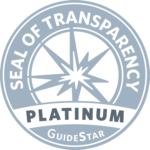FAQs for Parents
In short, recovery high schools are secondary schools designed specifically for students in recovery from substance use disorder. The staff of recovery high schools most often includes administrative staff, teachers, substance abuse counselors, and mental health professionals that each play a critical role in supporting their students. Additionally, recovery schools provide support for families learning how to live with, and provide support for, their teens entering into the recovery lifestyle.
Eligibility and Criteria
Phoenix Recovery Academy is committed to each student and their family, to support them in their path of recovery and academically. We enroll and admit students in high school that meet the academic requirements for 9th through 12th grade. Given that we are a recovery high school, we admit and enroll students who demonstrate a commitment to both their education and their sobriety.
- In order to enroll in Phoenix Recovery Academy, all prospective students must demonstrate a commitment to recovery and sobriety. We ask that this be demonstrated by taking a drug test prior to admissions. This is the first step in committing to the community and to one’s family and oneself the willingness to engage on a path to recovery. New students will be given 7 days to attend their first 12 step meeting and 21 days to obtain a sponsor; exclusion from the school community events may be required until the requirements are met.
- Students are required to be clean and sober while attending Phoenix Recovery Academy.
- All enrolled students must work with Phoenix Recovery Academy staff to develop an Individualized Recovery Plan. In the event of a relapse, the Individualized Recovery Plan may be revised to provide increased support for the student.
- Students must fully participate in substance abuse recovery programming offered at Phoenix Recovery Academy.
- Students must attend mutual help (e.g. AA, NA, Celebrate Recovery, etc) or equivalent, as approved by Phoenix Recovery Academy staff. The minimum meeting requirement will be determined in the creation of the students Individualized Recovery Plan.
- Prospective students and parents/guardians are expected to answer all questions honestly during the interview process. This will enable Phoenix Recovery Academy staff to work most effectively with applicants while they await enrollment decisions and if/when they are admitted to Phoenix Recovery Academy.
While Phoenix Recovery Academy is not affiliated with any religious organization, we are spiritual in nature, following the 12-step recovery model.
Yes. Please visit our Admissions page to complete our detailed application and student history forms, or contact us if you’d like to discuss more in-depth.
We’re proud to offer a “rolling admissions” policy, which allows for a student to be admitted at any time during the semester.
We also operate on a year-round schedule, allowing students to work towards credit recovery.
Yes. Phoenix Recovery Academy operates on a year round schedule. This allows students both the continued recovery support and the academic support, often in the form of credit recovery.
Phoenix Recovery Academy operates on a year-round academic calendar that includes four grading terms, and one summer term, which may include mid-year and final exams. Minimum passing grade is a D+. Report cards are sent home at the end of each grading term and progress reports are sent home mid-term of those report cards.
FAQs for Students
8am – 3pm
Yes, usually once-twice a week.
Unfortunately, we do not.
Yes, the expectation is complete abstinence.
We keep a low student to teacher ratio and will never have more than 10 students in a class.
Phones are collected at the beginning of the school day, given back at lunch to use, then returned after lunch until the end of the day.
If a student relapses and comes to us, we will work with them and get a new recovery plan and a relapse prevention plan
If you aren’t participating, then we will need to have a meeting with the student and parent about expectations
Violence



